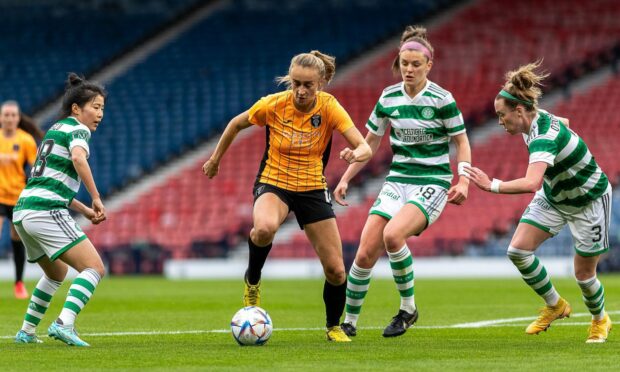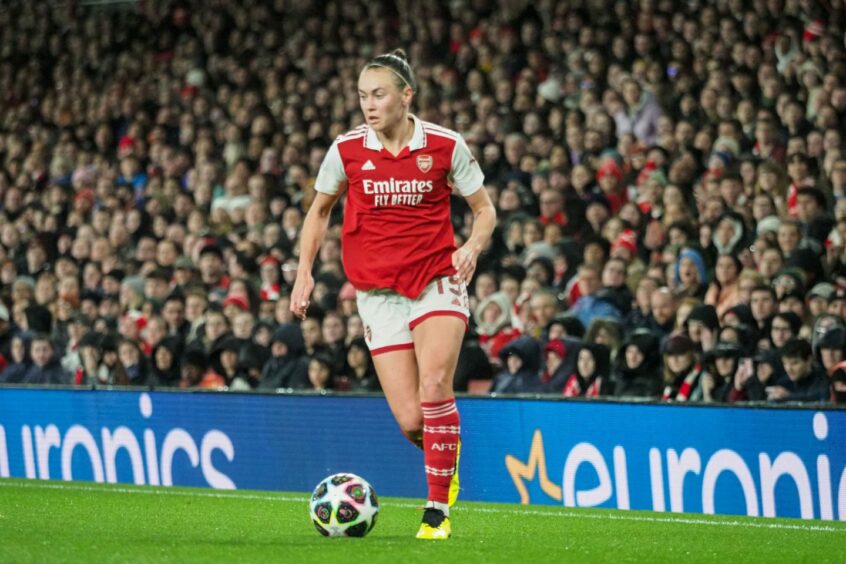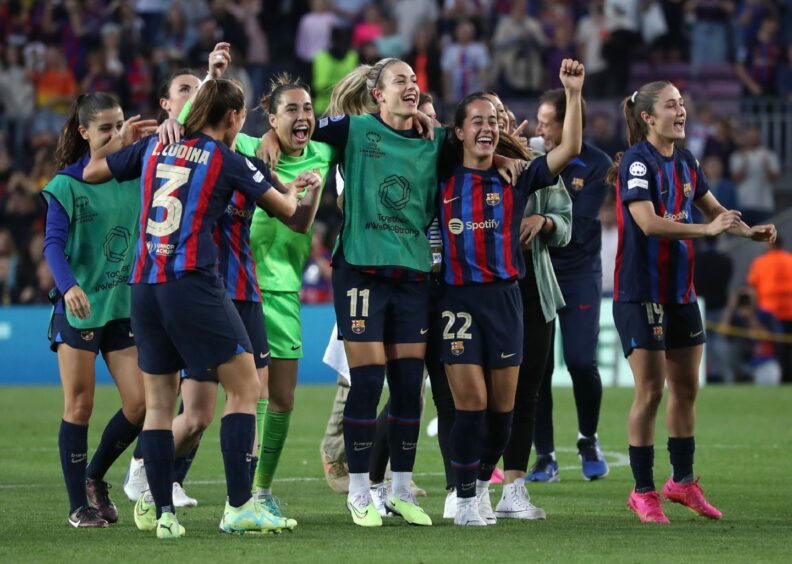I disagree with the editor of the Herald who made the case this week for coverage of women’s sport to be publicly funded.
Catherine Salmond told MSPs there is currently not a large enough audience for publications to justify increasing their coverage of women’s sport.
She suggested a publicly funded financial scheme for newspapers to hire reporters who could cover women’s sport, without costs for the publication.
It was quite disappointing to read and even more so as it came from a woman.
Just because you’re a woman, it doesn’t mean you have to enjoy or outwardly support women’s sport, but I think an idea like that is more damaging than it is helpful.
Women’s sport is where it is because for so long, sport has been run by men for men.
The one thing that holds women’s sport back is the perception that it’s not elite – that it’s not professional enough or there’s not a big audience for it.
And the biggest thing that frustrates me about that is that people are close-minded. They have decided that women’s sport struggles to exist and there are so many examples to prove that wrong.
Women’s sport is valuable
When you look at examples of clubs and organisations who have backed women’s sport, you can see the possibilities.
You can see it’s possible to make money. You cans see it’s possible to fill stadiums. You can see it’s possible for these clubs and organisations to generate success.
This year Arsenal created their first marketing and communications strategy specifically for their women’s team.
They’ve invested part of their budget into finding out more about their audience and to ensure they have a strategy that can generate the success and interest that reflects how good their product is, as one of the best teams in Europe.
They haven’t just mirrored what’s successful for the men. And they’ve benefited from that as they’re on the verge of selling out the Emirates on Monday night.
A similar perspective can be seen through a media lens, too. You have to put in the hard yards now, hire reporters and cover women’s sport, and build your audience.
The potential is there, but many seem apprehensive to be willing to accept or believe it.
Women’s football, for example, is one of the fastest growing sports in the entire world. There is value in its coverage and surely publications should want to be involved in that?
Women’s sport is not a charity, the coverage is deserved.
We need to move away from that perception. As professional athletes, I can say firsthand that the work that goes in every day to perform at the highest level is relentless.
Over my time in the sport, those levels have soared.
We are trying to be the best elite athletes we can be and the narrative around that product should also reflect that, especially now.
People in decision-making positions need to be more open-minded and need to be more aware that there is already so much bias, subconscious and conscious, that hinders women’s sport.
They are prejudices we’ve all grown up with and we are continually impacted by.
It’s something that improved media coverage could help to overcome and really significantly contribute in a landmark way to showcasing women’s sport in its best light.
Chelsea miss out on UWCL final
The first of this season’s Uefa Women’s Champions League finalists was decided on Thursday evening as Barcelona were 2-1 winners over Chelsea on aggregate after the second leg at the Nou Camp.
Having beaten Emma Hayes’ side 1-0 at Stamford Bridge last week, Barcelona took the lead through Caroline Graham Hansen in Spain, before Guro Reiten pulled the score level on the night, but it wasn’t enough.
Chelsea will be disappointed to have not made the final, but missing out is a reflection of the tight margins at the highest level of club football.
Their focus now will be firmly on the league where they are in the hunt for the title.
But it’s very tight between four teams at the top of WSL, so Emma Hayes’ side could fail to lift the trophy and miss out on Champions League football next season entirely.
If that was to be the case, it’ll be a bigger disappointment for Chelsea than not securing a place in this year’s UWCL final.
The Emirates hosts the other semi-final on Monday and it’s set to be an entertaining evening as more than 50,000 fans will be in attendance as Arsenal aim to reach the final for the second time in their history.
The winners of the 2007 edition of the competition host Wolfsburg, with the score 2-2 on aggregate following the first-leg of the semi-final in Germany.
Arsenal probably feel closer than ever to reaching a final, but will also be feeling aggrieved with the injury problems they’ve suffered this season.
ONLY 3,000 TICKETS AWAY FROM A SELL-OUT! 👏
A Champions League semi-final. A historic night at Emirates Stadium ✨
Get tickets while you still can! 👇
— Arsenal Women (@ArsenalWFC) April 28, 2023
To be on the cusp of a Champions League final without four of their best players – Kim Little, Beth Mead, Leah Williamson and Vivianne Miedema – and having come from 2-0 down in the first leg is a great achievement.
It could potentially be one of the best semi-finals there has been in the competition for a long time. It could become a real classic moment of the Champions League.
Dons have chance to extend good run of SWPL 1 form
Aberdeen Women have been in good form as of late, having won three games out of four after the split, but face a tough test when they host Motherwell on Sunday.
However, they could be getting a Motherwell side who are in a little bit of a slump following their Scottish Cup semi-final defeat to Rangers at Hampden last weekend.
The Dons have struggled against Motherwell this season, having been beaten 3-1 and 4-1 in their previous meetings, so this game could be a marker for them.
You would probably put both teams side-by-side in terms of their resources and their aims, but they’ve had very different seasons. So, a win for Aberdeen would give them a lift and would continue their run of good results.



Conversation